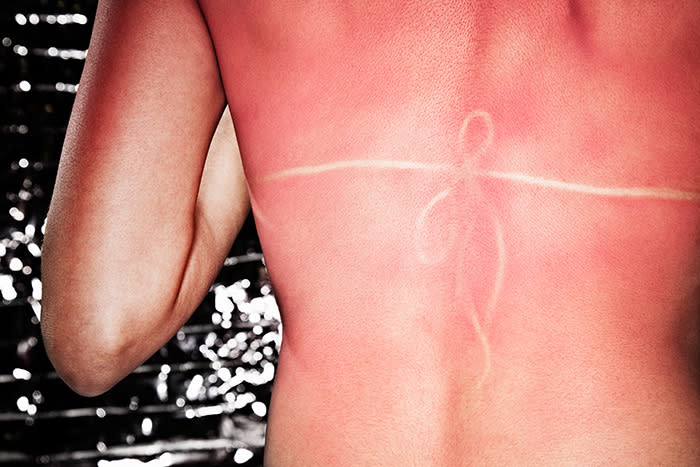Tanning Bed Users Less Likely to Protect Their Skin Outdoors, More Likely to Burn

Turns out, bad habits like to stick together. A new study found that people who use tanning beds — a practice that leads to wrinkles and puts you at a greater risk of skin cancer — also aren’t so good about sun safety when they head outdoors.
Compared with individuals who do not tan indoors, frequent indoor tanners (those who used tanning beds 10 or more times in the past year) are more likely to report that they never or rarely protect their skin from the sun, according to new research published in JAMA Dermatology.
Scientists at Johns Hopkins University School of Medicine looked at the national health survey data for 10,262 white, non-Hispanic adults ages 18 to 60. Of the study population — which was 49 percent female with a median age of 39 — a total of 78 people (7 percent) reported having tanned indoors in the past year. Among women ages 18 to 60 years, those who frequently tanned indoors were more likely to report rarely or never using sunscreen, sun protective clothing, or heading for shade on a sunny day.
Frequent indoor tanners were also more likely to report multiple sunburns in the past year, compared with those who did not tan indoors, and indoor tanners were less likely to have full-body skin checks by a dermatologist.
Some people are willing to get a tan at any cost — or at least a base tan, which dermatologists also don’t recommend — and aren’t necessarily going to employ safe sun practices when they step out of the tanning bed and into the sun, notes dermatologist Patricia Ceballos of Schweiger Dermatology Group. “People who use tanning beds are seeking to be tanned,” Cabellos tells Yahoo Beauty. “Therefore, it seems logical that they seek natural sun exposure as well.”
“These results demonstrate that many individuals who tan indoors may not acknowledge the long-term risks associated with increased UV exposure,” lead researcher Alexander Fischer, a professor in the department of dermatology at Johns Hopkins, told the Daily Mail. “These findings highlight the importance of not only emphasizing avoidance of indoor tanning in public health messages and physician communication but also reiterating the need for sun protection and skin cancer screening in this population.”
Let’s keep in touch! Follow Yahoo Beauty on Facebook, Twitter, Instagram, and Pinterest.

